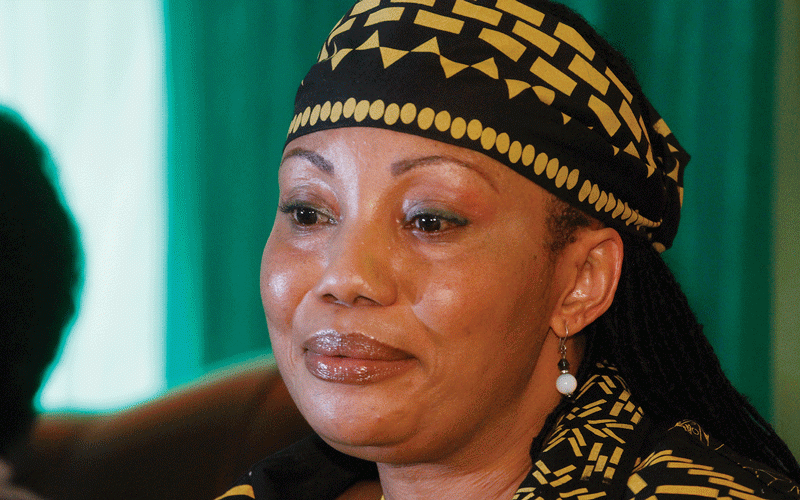
THE more things change, the more they remain the same. Zimbabwe’s management of elections has not changed one bit since independence in 1980. Zanu PF still abuses its power of incumbency and the opposition remains all at sea.
The election season has started in earnest, with the Zimbabwe Electoral Commission (Zec) receiving feedback on the draft delimitation report.
The report received a lot of flak from commentators, parliamentarians and the opposition. The main flaw cited was the use of the wrong formula to calculate constituency sizes and gerrymandering.
Zec chairperson Justice Priscilla Chigumba said her commission would consider all the objections before finalising the draft for gazetting.
Interestingly, in a last-minute and uncharacteristic of a president, Emmerson Mnangagwa earlier this week summoned Chigumba and gave her his own feedback, which has remained under wraps.
It is no secret that Mnangagwa’s recommendations, still unknown to the public, will receive more consideration than that of Parliament.
However, there is a fundamental flaw in all this — Mnangagwa is a candidate in the coming election, trying to secure a re-election that five years ago he seemed disinterested in.
Blessing Miles Tendi, an academic in writing to Africa Report, made some profound points on elections in Zimbabwe since 1980. He argued Zimbabwe has never held democratic elections and Zanu PF has always found a way to manipulate polls.
- Corruption Watch: Get scared, 2023 is coming
- Corruption Watch: Get scared, 2023 is coming
- Letters: Ensuring Africa’s food security through availability of quality seeds
- Is military's involvement in politics compatible with democracy?
Keep Reading
Wrote Tendi: “Zanu PF’s current behaviour is remarkably consistent with how it has approached elections since the 1980 independence poll. As Norma Kriger demonstrates, ‘despite their profoundly different contexts’ Zimbabwean elections between 1980 and 2000 ‘expose startling similarities’ in Zanu PF’s ‘discourse and coercive mechanisms’.”
Zanu PF cast critics and rivals as enemies of the State and “puppets” of the West and whites”.
It is a fact that all elections in Zimbabwe have been blighted by political violence in varying degrees of intensity since 1980. The voters roll has always been flawed and the electoral management body has been partisan.
This has been the reality and still remains a reality, albeit that some commentators like Nic Cheeseman have tried to portray a narrative that Mnangagwa has been democratic post the November 2017 coup.
Tendi encapsulates this point very well when he says: “If, as I argue, Zanu PF has not ‘reverted’ to ‘old ways’, but is simply laying the ground for an election victory in ways consistent with practices since the 1980s, an important focal point for debate should be why Zimbabwean opposition parties have struggled to effectively counter the ruling party’s formulaic electoral strategies.”
The 2023 general election is the 10th since 1980. Ten times the opposition in various forms and shape have complained of rigging and they still wail on the same issue. Probably it is time they have to change tact, having learnt something and do something differently in its struggle to capture state power.
Opposition parties have shouted themselves hoarse just before election about forming electoral coalitions, but more often than not, nothing of substance comes from it. The parties continue to participate in the polls, giving Zanu PF an easy run to victory.
Secondly, the opposition parties have largely failed to fund their election campaigns. They are always short of funds and human resources to launch sleek campaigns and resultantly, they end up giving token opposition in the contest.
Thirdly, the opposition has largely failed to monitor and observe the national polls. They are either short of polling agents or they have poorly trained agents, making their reports nearly useless for use in any election petition post elections.
Fourthly and more important is the opposition’s propensity to produce dense manifestos that are not easily broken down to show what and how they will do things when they win elections.
The manifestos are largely highlighting Zanu PF’s shortcomings and short on solutions, which the voters are looking for.
Having said all the above does not excuse Zanu PF from its complicity in rigging elections through gerrymandering and systematic disenfranchisement of opposition activists or the most noticeable trait of violence against opposition functionaries and followers.
The 2023 elections are watershed in the sense that fatigue is catching up with opposition donors and activists after a gruelling quarter century in the trenches since 2000.
This election could seal the opposition’s fate in its current configuration, unless they come up with some creative ideas of saving themselves.
It is important that the opposition should try to ride on the recent judicial success scored against local government law — Urban Councils Act — that allowed a minister to order councils to rescind their resolutions in the operations of councils.
This decision, declaration that section 314 of the Urban Councils Act as not constitutional, if confirmed by the Constitutional Court, gives the opposition some breathing space to reorganise itself through good administration of local authorities.
It means the opposition should for the first time since 2000 nominate competent and hardworking members as councillors in urban areas, make its successes in local government a springboard for national control potentially in the next decade. This is hard especially for an opposition that feels it can win national elections now and take State power.
The same template can be replicated in the selection of National Assembly and Senate members.
This would give the opposition the best opportunity to shadow the government and block unpopular laws from being passed by Parliament.
Like Tendi argues, Zimbabwean opposition parties have to effectively counter the ruling party’s formulaic electoral strategies to get into power.
This is no easy feat, but can be a gradual process that if rigidly followed with little adaptations can lead to victory.
Believing Zanu PF will change is akin to milking a bull as experience has shown. Probably it’s time the opposition changes.










